
Research from the University of Michigan reveals a connection between pollen exposure and death rates among older adults with breathing problems.

The climate crisis will cause an additional 250 thousand deaths per year between 2030 and 2050. And though wealthier countries like the U.S. emit larger amounts of greenhouse gas per capita, developing nations are already burdened with the worse effects of climate change. Meanwhile, inadequate infrastructure in communities both near and far is making already disadvantaged communities more vulnerable. University of Michigan researchers are analyzing this unjust nexus from both technical and adaptive perspectives — charting new technologies that can help communities adapt and addressing underlying disparities.

Research from the University of Michigan reveals a connection between pollen exposure and death rates among older adults with breathing problems.

Research led by the University of Michigan shows that communities of color in Texas face pronounced risks of E. coli exposure in nearby waters after intense rain.

Community program and policy interventions aimed at reducing screen time are less successful in neighborhoods that lack green space
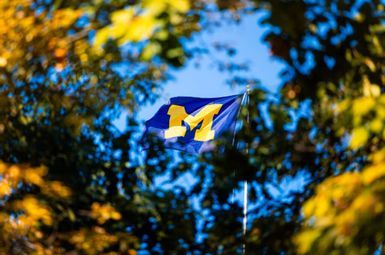
The Mellon Foundation has awarded nearly $4 million in a first-of-its kind grant to bolster the University of Michigan’s leading work in environmental justice.
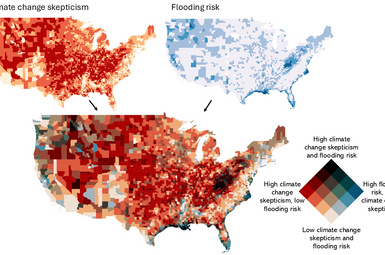
In certain parts of the U.S., the ability of residents to prepare for and respond to flooding is being undercut on three different levels.
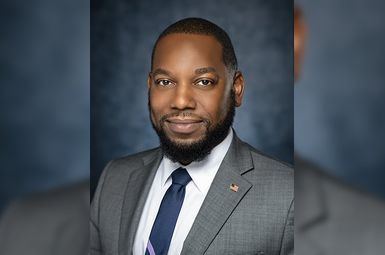
"Energy justice is this concept that really looks at how do communities participate in both the health environment and social impacts of our energy system, recognizing that the energy system has had certain burdens on communities. And so environmental justice is really saying that all communities, regardless of race and income and geography, should be afforded a clean environment."
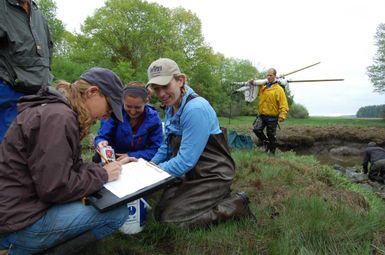
U-M has received a $25 million grant from the National Oceanic and Atmospheric Administration to support collaborative research initiatives addressing critical environmental challenges in U.S. coastal communities.
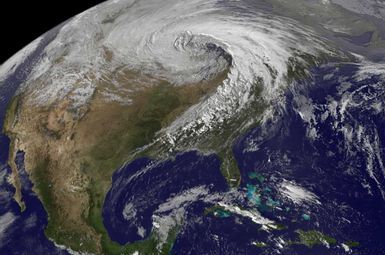
Anyone who’s spent their winter months around the Great Lakes has probably had the uncanny experience of living through three seasons in a single weekend. According to new research from U-M, these wild weather swings are poised to become even more common in the future.
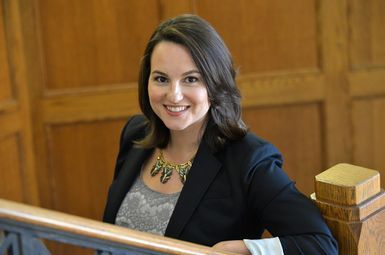
As climate-induced migration increases in the U.S. and elsewhere around the world, what are the potential policies to help communities adapt and support residents? In a new Core Conversations podcast, Kaitlin Raimi explores how Americans view climate migrants, how policies could become a crucial factor influencing climate migration, and what the broader impacts of migration may mean for American society and the economy.
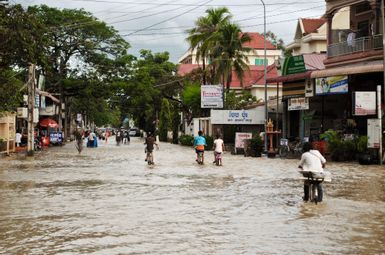
A recent University of Michigan study exposes a gap in sociology: a lack of focus on climate change. Societies fuel and face the consequences of this crisis, but sociology as a discipline appears insufficiently engaged with the issue, says Sofia Hiltner, U-M doctoral candidate in sociology.
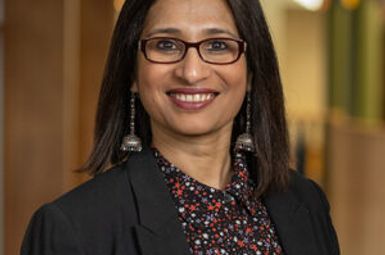
“Clarity on vulnerable subgroups more susceptible to heat-related deaths will enable policymakers to design effective intervention strategies targeted to these subgroups. Downstream, this will ensure greater climate action equity.”
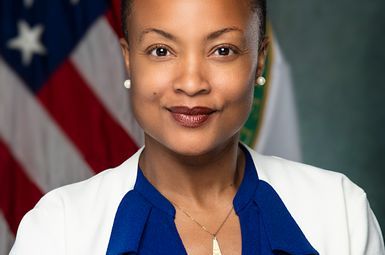
Currently the director of the Office of Energy Justice and Equity and the secretarial adviser on equity at the U.S. Department of Energy, and formerly the department’s chief diversity officer, Baker will advance sustainability education and research across U-M schools and colleges.
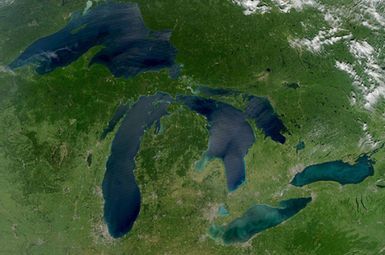
The U.S. National Science Foundation has awarded a three-year, $614,000 grant to U-M and its international partners to create a new research initiative that will address the socioeconomic vulnerabilities of climate migrants in the Lake Victoria Basin (LVB) and Great Lakes Region (GLR).
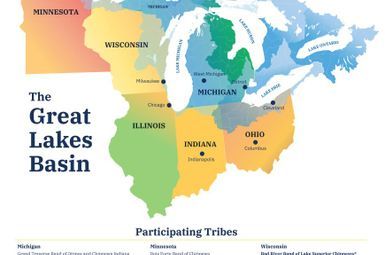
“Given that we sit in the heart of the Great Lakes and 21% of the world’s fresh surface water, we wanted to explore the region’s plans to identify the highest-impact, most innovative and scalable multi-state opportunities. We looked for what was working, to inform ways to accelerate community-based climate action."
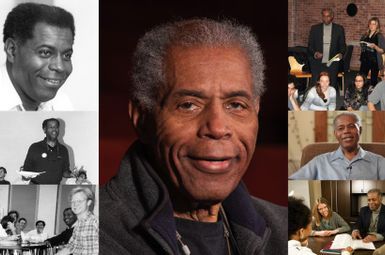
"For more than four decades, Bunyan taught and mentored SEAS students, modeling for them how to be effective advocates for equity and justice in communities that face environmental racism. Thanks to Bunyan’s tireless passion for creating change, his legacy as an environmental justice pioneer will live on in future generations of advocates.”
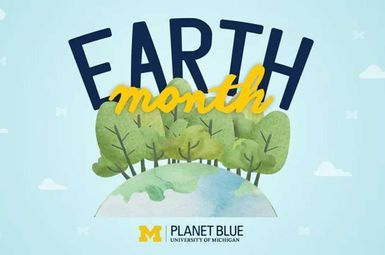
U-M is marking late March and all of April with a series of events focused on sustainability and climate action, continuing a tradition that began with the first “Teach-In on the Environment” in 1970—which grew into what is now known as Earth Day.
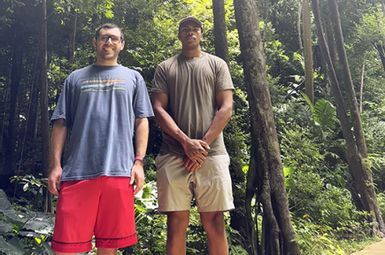
The global challenges posed by climate change are widespread, impacting various aspects of human life, with water resources at the forefront of these challenges. As climate change advances, it is projected to exacerbate water scarcity and access issues, given the intensification of water-related hazards (such as hurricanes and flooding) and rising temperatures that will lead to sea-level rise and saltwater intrusion.
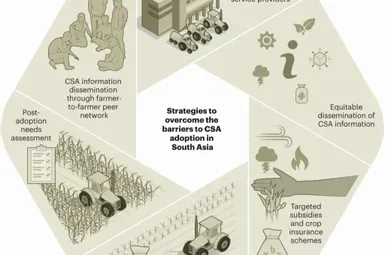
Despite the possibility of climate-smart agriculture improving food security, most CSA practices and technologies are not widely adopted in South Asia.
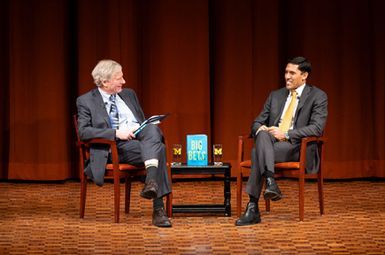
“Often we look at climate change or widespread human poverty or these deep inequities that hold so many communities back generation after generation, and we say to ourselves, these challenges are too complex. I’m just one person; what can I do to really make a difference?”

The United States recently passed major climate change laws, such as the Infrastructure Investment and Jobs Act (IIJA), the Inflation Reduction Act of 2022 (IRA), and the CHIPS and Science Act, which allocate funding with a goal of expanding energy-transition initiatives. Analysts suggest new investments could reduce greenhouse gas emissions by more than 40% below 2005 levels by 2030.
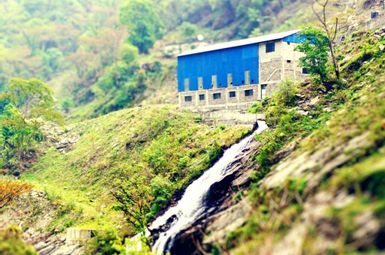
Four newly awarded sustainability “catalyst grants” at U-M are piloting innovative ways to bolster climate resilience and sustainability. Funded by the U-M Graham Sustainability Institute, these projects will explore renewable energy deployment in Nepal, climate justice in the Midwest, textile recycling innovation and equitable transportation planning.
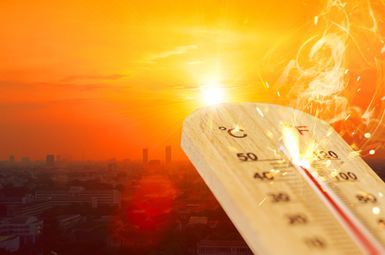
"“And the warming will continue to accelerate until we halt the burning of fossil fuels. This means continued worsening extreme heat and heat waves, but also many other worsening climate extremes driven by warmer temperatures. More severe droughts, more intense rainfall, more devastating hurricanes and bigger, more widespread wildfires."
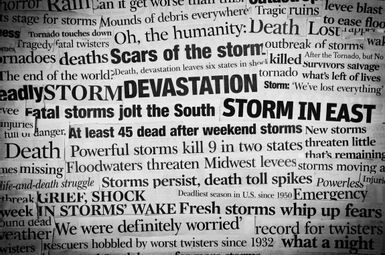
Concern for climate change grows—along with support for policies to reduce emissions—when people read about Americans being forced to move within the U.S. because of it. That’s in sharp contrast to learning about climate-induced moves to the U.S. by non-Americans, which doesn’t move the dial on climate change beliefs or policy support.
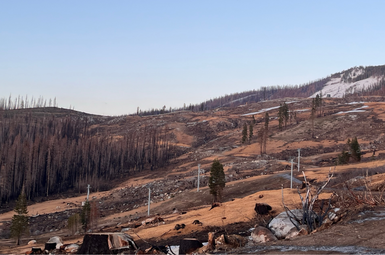
Rackham student and sociologist Joyce Ho’s research seeks to understand homeowners’ experiences and insurance companies’ responses in the aftermath of forest fires in northern California.
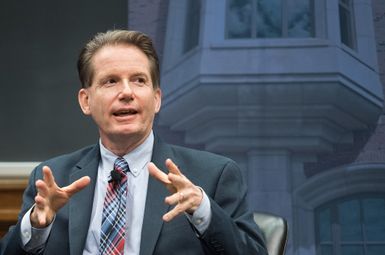
At the COP28 climate summit in Dubai, nearly 200 nations approved a global pact that calls for transitioning away from fossil fuels—a first. The deal also calls for tripling the use of renewable energy, doubling energy efficiency and slashing methane emissions.

Associate Professor Tony Reames will be returning to the University of Michigan School for Environment and Sustainability (SEAS) from his leave of absence at the Department of Energy (DOE), where he served as the Principal Deputy Director for State and Community Energy Programs and the DOE’s Deputy Director for Energy Justice. Reames will become the Tishman Professor of Environmental Justice at SEAS and serve as the new Director of the SEAS Detroit Sustainability Clinic, effective January 2024.
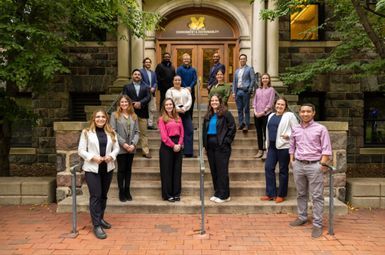
Sixteen U-M students and their faculty adviser will attend the two-week COP28 climate summit in Dubai, United Arab Emirates. The students will observe the negotiations, attend side events and interact with various experts. This year’s conference runs from Nov. 30 to Dec. 12. U-M has sent student delegations to U.N. climate change conferences since 2009.
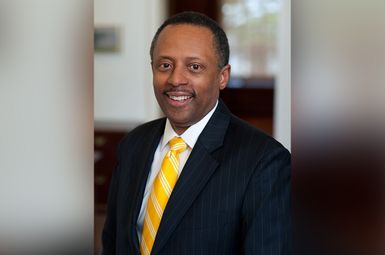
Ann Arbor and other cities across the Midwest and Northeast have been referred to by climate specialists as “climate havens,” natural areas of refuge that are relatively safe from extreme weather events such as intense heat and tropical storms.
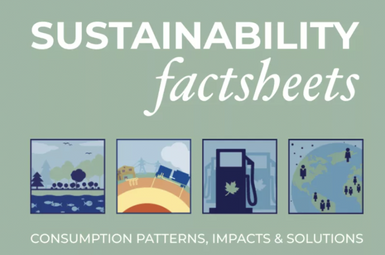
Each peer-reviewed factsheet presents data on patterns of use, life cycle impacts, and sustainable solutions. Updated annually by a current SEAS graduate student, the collection is a free resource to inform journalists, policymakers, business professionals, students, teachers and the public.
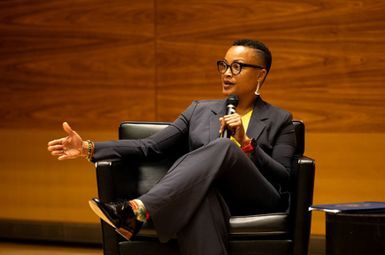
We are in an “extraordinary moment” to create an equitable clean energy future. And Michigan, like other states, is an “essential part” of bringing forth that future.
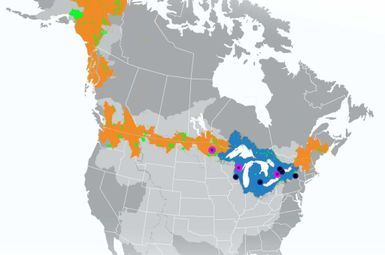
U-M researchers will lead a new effort to strengthen the climate change resilience of vulnerable communities that span international boundaries and jurisdictions. The U.S. National Science Foundation has awarded $5 million to U-M to establish the Global Center for Understanding Climate Change Impacts on Transboundary Waters.
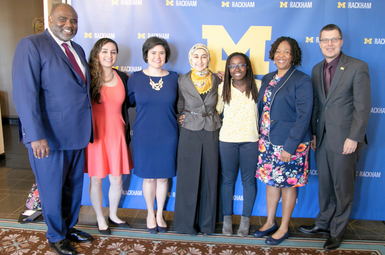
The old adage “the end justifies the means” is one way to critically paraphrase the philosophical underpinnings of the early 20th century environmental conservation movement. Historically, conservation leaders have stolen land from Indigenous people, enacted eminent domain land grabs, and perpetrated other unjust actions in service of environmental conservation. Rackham alum Rebeca Villegas (M.S., M.U.R.P. ’20) is changing that harmful dynamic.
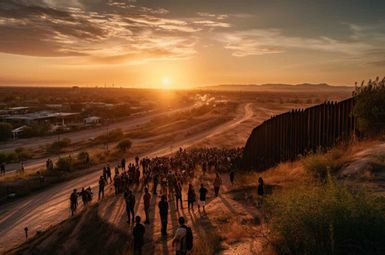
Reading about climate-induced immigration prompted negative, nativist attitudes among people toward the affected migrants—an unintended, perhaps even paradoxical effect of many delivering the original messages, according to researchers at U-M and elsewhere. The findings, the researchers say, raise cautionary flags for reporters, advocates and other communicators in their work related to forced migration caused by global climate change.
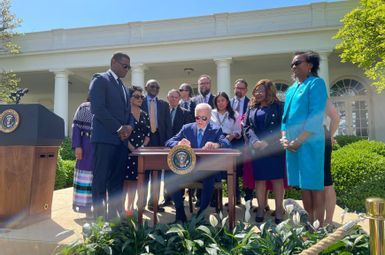
President Biden signed a historic executive order called Revitalizing Our Nation’s Commitment to Environmental Justice for All, which will direct federal agencies to focus on confronting longstanding environmental injustices. Kyle Whyte, the George Willis Pack Professor at the U-M School for Environment and Sustainability (SEAS), a U.S. Science Envoy, and a member of the White House Environmental Justice Advisory Council, served as an advisor on the development of the executive order.
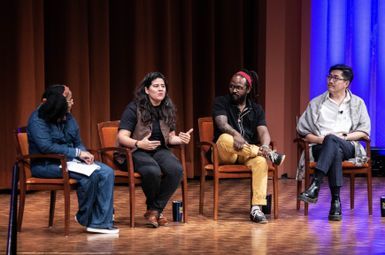
Participating in our democracy, particularly locally, and organizing for systems and policy change to promote the collective good is critical to building a clean energy future that is just and works for all. This was the overall sentiment of a panel that brought together three community activists and organizers who have emerged as powerful leaders that work on pushing forward solutions that consider the rights of all people.
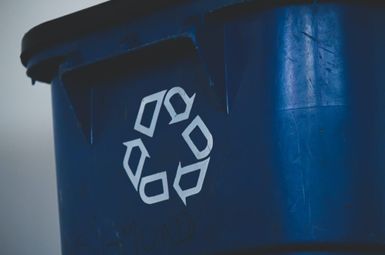
A strong majority of Michigan local government leaders feel that good governance includes promoting environmental sustainability and “being green." A survey of nearly 1,400 leaders across the state found that fully 94% of Michigan local officials support local access to recycling in their communities.
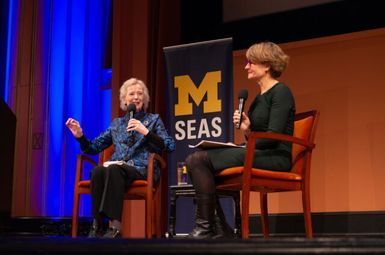
“We are on the cusp of a clean-energy world, which we should all be immensely excited about and look forward to. Yet, we have this strange paradox where our world continues to warm 2.4 degrees above pre-industrial levels, and we don’t talk about it."

The risk of death rises among older adults with Alzheimer’s or other dementias in the months following exposure to a hurricane, a new U-M study shows. Their increased risk could be due to disruption of normal routine, such as access to caregiving, changes in living environment, loss in access to medications, and change in daily routines, said study first author Sue Anne Bell, assistant professor at the U-M School of Nursing.
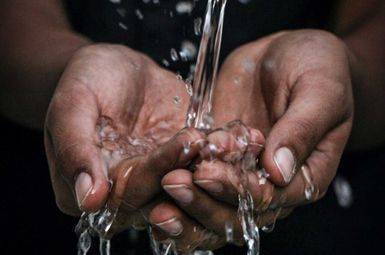
As climate change and population growth make water scarcity increasingly common, a much larger share of the global population will be forced to reckon with the costs of urban water scarcity. A new study sheds light on how households bear the monetary and nonmonetary costs when water supply is intermittent, rather than continuous—with policy implications that could help make urban water safer, more sustainable and more equitable.
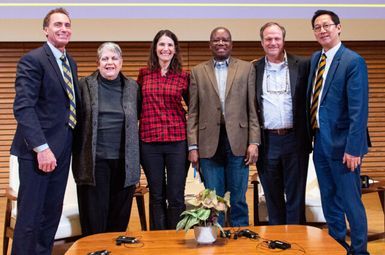
Janet Napolitano, former UC president, U.S. secretary of homeland security and Arizona governor, joined U-M sustainability experts for a panel discussion on climate action. The discussion, entitled “Working Together to Tackle the Climate Crisis,” centered around mobilizing government, higher education, the private sector, community stakeholders and individuals toward addressing the climate crisis.
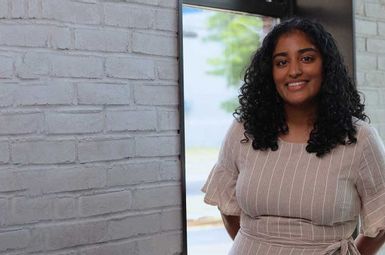
“I wish to use this fellowship to answer these questions in the context of Mexico, documenting through “day in the life”-style illustrations of various people and communities interacting with water. I hope my findings can be transferable to other countries and regions facing similar challenges.”
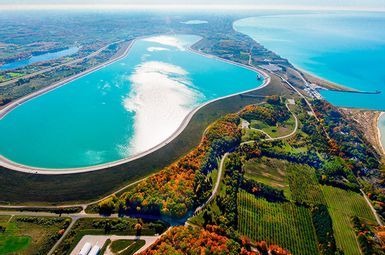
The Graham Sustainability Institute’s Carbon Neutrality Acceleration Program (CNAP) announced $1,160,000 in funding for six new faculty research projects. They tackle a range of carbon neutrality topics and augment the CNAP portfolio, which addresses six critical technological and social decarbonization opportunities: energy storage; capturing, converting, and storing carbon; changing public opinion and behavior; ensuring an equitable and inclusive transition; material and process innovation; and transportation and alternative fuels.

Classmates Cecilia Garibay and Dolores Migdalia Perales teamed up to develop the Michigan Sustainability Case, “A Tale of Two (Polluted) Cities: Latinx communities and their allies face air pollution in Southwest Detroit and Southwest Los Angeles.”
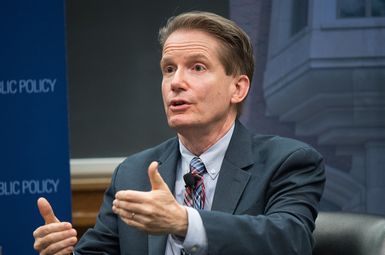
Climate change deniers are using new strategies to spread their beliefs — namely the conspiracy theory that climate change is a hoax meant to subdue populations.
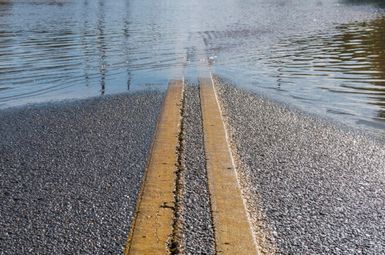
Michigan Sea Grant recently received $500,000 in funding to help improve resilience under future climate change scenarios in disadvantaged coastal communities in Michigan and Wisconsin. The project will assess flood risk for disadvantaged communities in Berrien County, Michigan, and Milwaukee, and will provide a framework to extend the analysis throughout the Great Lakes.